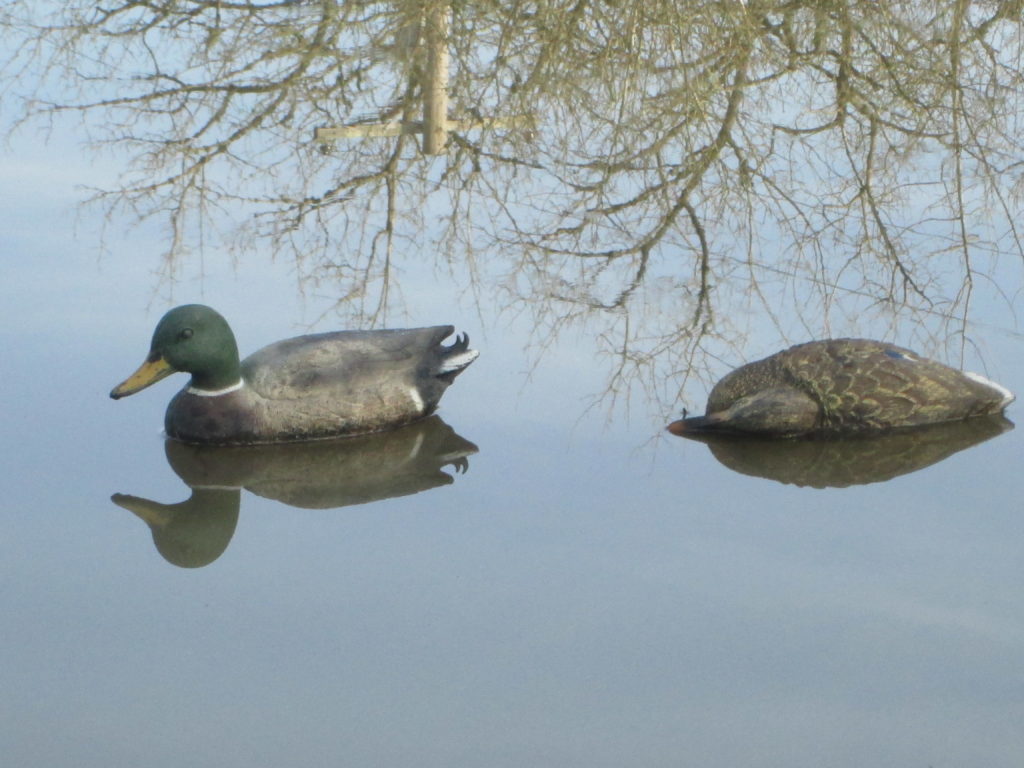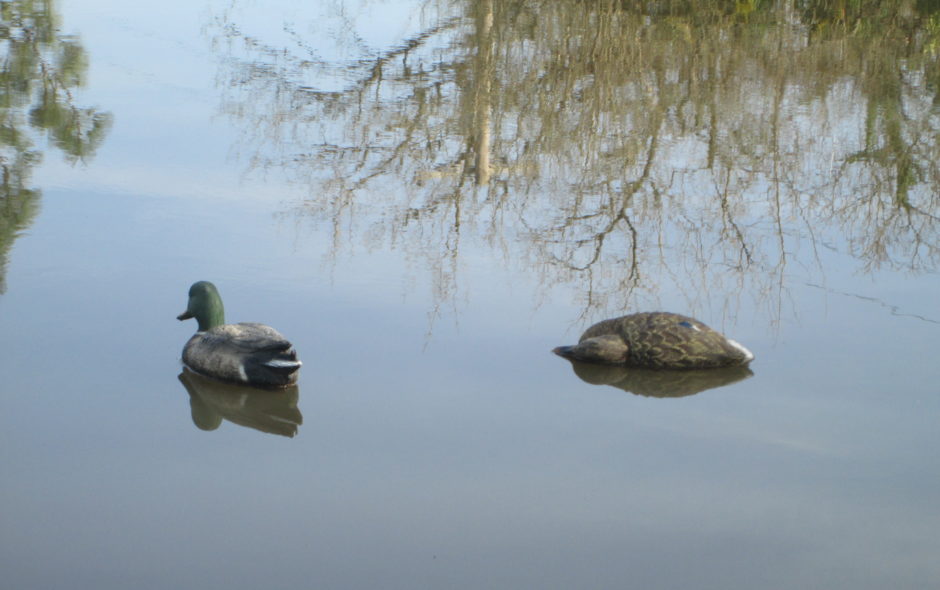
The duck was still circling around its dead mate the next morning when I went walking, so I stopped and talked to it through the fence, then went back to the house for my camera and took some photos. I thought our kids would want to know what I had learned about the Mallard duck’s habits and loyalty. Somebody said one of the kids was out duck hunting that day, but, well, the others might want to know, and probably he would too. Before I walked on, I sang to the duck, and I hoped it somehow understood that it must leave, take care of itself, and get food.
I didn’t want to find it there on the third morning when I went walking. But not knowing what I would see, I took a small bag of Cherrios with me … just in case the duck was still there. Sadly, it was. I could hardly imagine how it was surviving. I walked around the fence at the end of the field, and doubled back to the pond, where I tossed Cherrios out onto the water, some close enough for the duck to scoop them up, I was sure. But it seemed distracted, uninterested. Or perhaps it was just entirely focused on its mate. About then Kip came jogging along.
“Uh, Mom,” he said. “I think we’ve got a couple of plastic ducks here.”
So it was…
I guess there’s always something to learn, and be surprised by!
© Kathy Beckwith, Winter 2015
